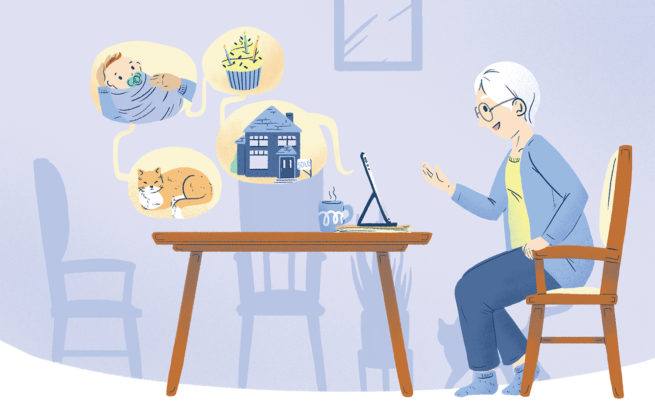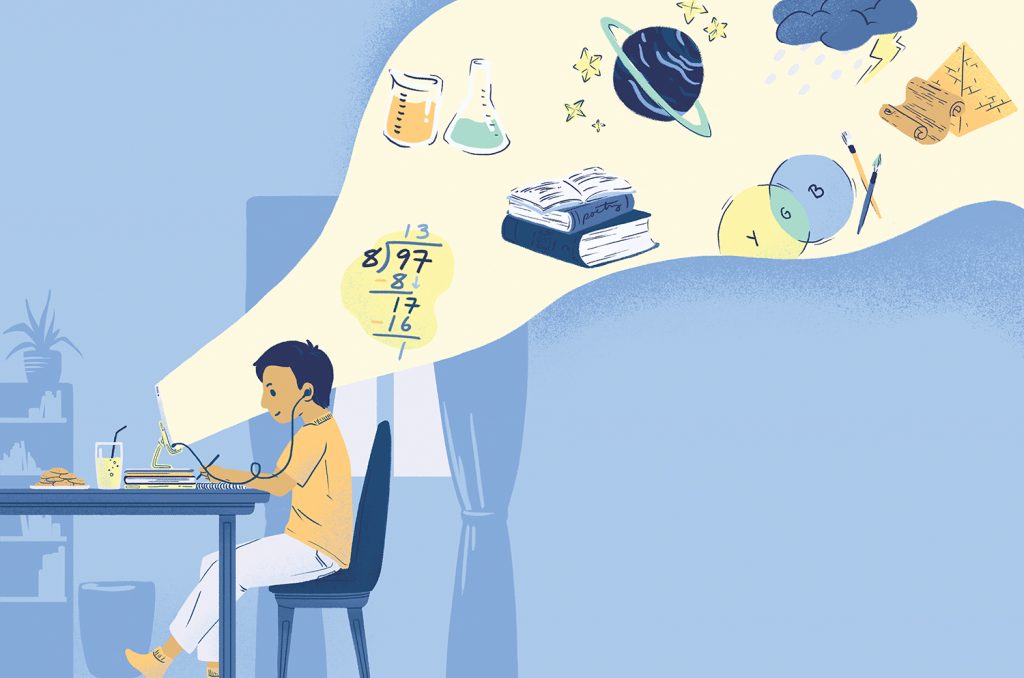Technology is ubiquitous — it’s everywhere around us, and often a part of our daily routines. From phones and laptops, to smart watches and even toothbrushes and coffee makers. But what happens when you don’t have access to what we may refer to as “basic” technology, like the Internet or a smartphone?
We grumble about Zoom meetings and online schooling as we navigate through life during a pandemic, but should consider those who feel increasingly isolated due to a lack of Internet access. “The pandemic ramped up existing problems in our society — including technology gaps,” explains Rob Yager, President and CEO of United Way of the Alberta Capital Region.
As pervasive as digital technology may be, not everyone has access to hardware such as computers and tablets, or high-speed Internet — tools that have become necessary during the pandemic. Digital technology keeps us connected to family and friends, and allows us to gather information about the pandemic (including social supports), succeed at school, work or look for work opportunities, and more. For these reasons, Edmonton Community Foundation (ECF) has invested more than $580,000 to support information technology (IT) for marginalized populations needing tech help during COVID.
One of the first recipients of this funding was the United Way’s All in For Youth program, which supports socially vulnerable youth at five Edmonton schools. In the early days of the pandemic, funding from ECF helped the program provide 420 laptops to K-12 students lacking technology for home-schooling. “In many cases, not only did these kids not have anything they could bring home with them, because their schools weren’t equipped, but no one in their households had devices either,” says Yager.
The devices have also been critical for the well-being of the program’s students. When the lockdown began, students who were already struggling in school found themselves without the educational and social support the program provided while navigating COVID-related stress in their households. Laptops and Internet access ensure kids remain connected with their classmates and teachers, as well as mental-health supports and mentoring.

The pandemic has also put the city’s immigrant and refugee population at a much greater risk of social isolation. Ese Ejebe, a project coordinator with the Multicultural Family Resource Society (MFRS), says many newcomers lack adequate access to digital technology because of financial and language barriers.
“There was definitely a need [for greater technology access] before the pandemic and it just became so much more obvious during the pandemic because of the new normal — the new way of doing things,” she says.
Many MFRS clients live in multigenerational households where the available devices are in high demand by children attending school online, parents researching government supports and grandparents checking on loved ones abroad, for instance.
Ejebe is the project coordinator of the Technology Ambassador project, which received funding from ECF to distribute devices and support digital literacy for 50 families in the Eritrean, Ethiopian, Ivorian and Syrian communities (which are connected to MFRS through various programs and services). MFRS has hired four youths to act as technology ambassadors by liaising with specific families, identifying their technology needs and helping them make the most out of the devices they eventually receive. “We don’t just want to provide devices, but information for families on how to use them,” says Ejebe.
ECF funds are also assisting the elderly residents of Edmonton Chinatown Care Centre to stay connected with loved ones during COVID-19. The centre has been able to buy tablets and a laptop, a cable to connect the devices to a larger screen, as well as Pocket Talkers (assistive devices to help hard-of-hearing residents communicate over video) and disposable covers to prevent COVID-19 transmission.
Joanna Yu, the centre’s activity/volunteer coordinator, says virtual ‘visits’ have become critical to the well-being of residents. “Most of their families can’t come in to visit them, so we can only do virtual visits,” she explains. These visits are not only lifelines to family abroad, but also to loved ones nearby, as outside visits are restricted and sometimes, not possible at all (such as during an outbreak of COVID-19 this past winter). These virtual conversations are just as crucial to family members, too, particularly when they can’t be at the bedsides of their loved ones at the end of their lives.
As people in Edmonton and around the world get vaccinated, life will return to normal — or, at least, a new normal. Yager points out that we’re unlikely to revert back to old ways of using technology, which means it’ll be just as important to close the technology gap for marginalized populations moving forward. “From most indications,” he says, “we’ve got a lot of work to do as a community.”
